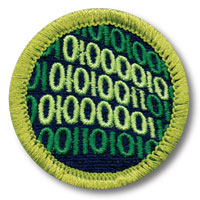
Building Real-Life Skills Through STEM
As we look ahead to Scouting’s next century, we know that giving our Scouts solid skills in Science, Technology, and Engineering and Math – or STEM – is what will make the difference in having a qualified workforce where it’s needed to help keep our nation strong.
STEM education has been a top priority for the Obama administration, as the nation’s top company executives report that they can’t find enough qualified workers for openings requiring science backgrounds. We recognized as new technologies began to unfold that for our Scouts to be Prepared. For Life.™ ,the BSA needed to work closely with our global high tech partners – AT&T, Exxon Mobil, and others – to strengthen our STEM commitment.
As a result, we’ve come a long way since the days of the Blacksmithing merit badge (one of the original 57 merit badges introduced in 1911 and discontinued in 1952). And we know many of our Scouts are already much more tech-savvy than many adults. I was in awe of how much tech gear our Scouts had on hand at this year’s National Jamboree!
In mid-July, we announced our new Programming Merit Badge. Scouts will be required to demonstrate knowledge of potential programming careers, new software applications, programming languages, intellectual property and protecting the rights of others, and how to create and debug sample programs. This training focuses on programming skills needed for robotics, factory automation, and embedded industries. It’s also the first merit badge that examines the similarities between computer-related injuries (i.e., carpal tunnel syndrome) and sports injuries.

BSA’s Programming Merit Badge
Scouts are also required to earn a “Cyber Chip” for learning how to stay safe while working online, texting, using social networks or the latest electronic gadgets. Our Scouts can work through these requirements with the help of a special companion website that includes training through YouTube videos – it’s not just paper handbooks anymore!
Our roster of STEM-related merit badges already includes Robotics, Geocaching, Inventing, Search and Rescue and even Chess to challenge and engage kids with critical thinking skills in ways that are fun. And our Cub Scout activity pin and belt loop programs offer introductions to science, engineering and mathematics careers.
Through STEM, we also offer NOVA awards, which are designed to increase interest in STEM skills while making it cool and rewarding.
We want our Scouts to understand how everything in their daily lives is impacted by programming. What other high-tech training do you think our Scouts need? I’d be interested in your suggestions for how we can continue to make our STEM programs strong and meaningful.
More later!
Wayne



